I'm sure no one is totally upset that I haven't posted anything for my Favorites Spotlight, but it bugs me when something isn't done on time. Life just gets in the way sometimes. Reading for challenges, colds that makes my head feel all foggy, a bunch of private lessons, a huge pile of laundry, a cat who's begging me to play fetch.... *sigh* ....there's just too much going on.
 |
| Yep, that's right! I sometimes think she's channeling a dog or something |
I refuse to miss posting before the month is out, however, and this month I'm going for a favorite series of mine that is popular with practically all fantasy lovers. And that's J.R.R. Tolkien's Lord Of The Rings series.
The Hobbit and The Lord Of The Rings Trilogy
by J.R.R. Tolkien
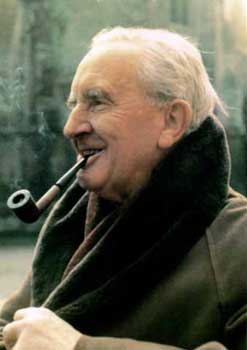 |
| J.R.R. Tolkien |
Personally, I've read each of these books at least 4 times. I can't remember when I first read them, but it was back when I was a kid and around the time the first movie came out (I think). I remember enjoying them back then, but I didn't really love them until my adult years, when I came across an audio-lecture series called Rings, Swords, And Monsters: Exploring Fantasy Literature, with professor Michael D.C. Drout.
 |
| An excellent lecture series |
The books are very much a work of art. Tolkien was incredibly talented with languages and with creating fantastical worlds. The detail that went into the story and the characters is really amazing when you pause to think about it. The culture and back-stories of every race had so much depth in them, to the point where Middle-earth starts to turn into something more real. Peter Jackson did a very good job of replicating this world on the movie screen, but there's nothing like actually reading about it to make you realize how truly awesome the stories are.
Let's start with The Hobbit, shall we? The novel that began it all.
The Hobbit
"In a hole in the ground there lived a hobbit": the famous line that inspired J.R.R. Tolkien to write
this novel, or so the legend goes. He wrote this book for children, but clearly it was a success for all ages. Perhaps what made this book so popular was not the creativity, but Bilbo Baggins himself. He's not your typical hero with any special powers. Instead he's just a middle-class hobbit who finds himself on an unexpected adventure. He does not start out as a hero; instead he must learn to become one. And we don't just see him become a hero, we also see returning back to a normal life after the adventure is done. Because his situation in life is a bit similar to our own middle-class lives, we find ourselves able to relate to Bilbo and how he reacts to each problem, thus making the story more special and real.
I love what Professor Drout said in his lecture series. Here's an excerpt from the course guide:
"What Tolkien learned from writing The Hobbit has been adopted by subsequent fantasy writers: elements of the children's story can be taken up and developed in complex, sophisticated ways. The psychological journey of the protagonist is important: it is more interesting for readers when the hero is not just a Conan the Barbarian type but rather someone who can mediate between the bourgeois world of the reader and the heroic world of the tradition. Finally, "vast backcloths," a sweeping grandeur of history and tradition, can be invoked by slight--but consistent--allusions."
The Lord Of The Rings Trilogy
The next book that came out (17 years later, I might add) was The Fellowship Of The Ring, the first book in a spectacular series.
Once this little issue was resolved, the rest of the story pans out beautifully. It is an epic trilogy, with many trials, tribulations, and triumphs. Since it would take too long to describe why I love each book individually, I'm going to focus on the series as a whole, the way Tolkien originally intended it to be.
Let's start with the characters:
 I love complex characters in a story. And when I say complex, I mean that each one has a distinct personality, complete with flaws and individual good qualities. Every time you read about a specific character, you feel as if you completely understand what they want, and how they are going to react with each event. There are characters you can become emotionally attached to, and others that just impress you with their complexity, even if you don't like them as a whole.
I love complex characters in a story. And when I say complex, I mean that each one has a distinct personality, complete with flaws and individual good qualities. Every time you read about a specific character, you feel as if you completely understand what they want, and how they are going to react with each event. There are characters you can become emotionally attached to, and others that just impress you with their complexity, even if you don't like them as a whole.The characters that are certainly the most likeable are the hobbits. The hobbits are the fantasy people that are most like us, with the closest-resembling lifestyle, culture, and behavior. And here they are, being the main protagonists of the story! It's something for us the reader to attach to and feel comforted by. My favorite characters are, in fact, the majority of the hobbits, with the exception of Frodo, whom I'm not impressed by. I confess, I always found Frodo to be a weak character who is dependent on everyone else to help him. I never thought of him to be a strong Ringbearer (sorry Frodo fans!)
Personally, I feel the strongest (and perhaps my favorite) character is Samwise Gamgee. In a simple way, he was the smartest out of all the characters, and the most loyal, stubborn, brave friend a person could have. His role was very understated, yet I feel his was the most important, as it was his choices (such as the choice to not kill Gollum) that helped shape the outcome of the war against Sauron.
My two other favorite hobbits were Merry and Pippin, of course. They provided a fresh, lighthearted look on the goings around them, and while Pippin was not as brave as Merry was, they still did whatever they could to help their friends, and that loyalty seems to be a special trademark of hobbits.
And let us not forget the characters from the other races, such as Gimli the dwarf, Legolas the elf, and Gandalf the wizard. I personally love the relationship that grew between Gimli and Legolas; a friendship that grows between two such different individuals is always guaranteed an interesting read. And Gandalf is such a wonderful, good and wizened character, how could anyone hate him?
And let us not forget the anti-hero, Gollum. I do not like his character but I do pity him (which is the whole point when it comes to Gollum), and I find his role in the stories as both impressive and wonderfully wrought.
Now let's talk about the writing
One of the best things about this series is the writing. Tolkien was the type of author who was very careful about the words he selected, and it shows in his works. This is why these fantasy novel are frequently labeled as literature (I personally reserve that term for anything that is really well-written). In his lecture series, Drout points out a couple of specific passages where Tolkien's word choice really comes into the light.One such passage was from The Fellowship Of The Ring, where Gandalf recounts Saruman's speech to him:
"...listen, Gandalf, my old friend and helper! I said we, for we it may be, if you will join with me. A new Power is rising. Against it the old allies and policies will not avail us at all. There is no hope left in Elves or dying Numenor. This then is one choice before you, before us. We may join with that Power. It would be wise, Gandalf. There is hope that way. Its victory is at hand; and there will be rich reward for those that aided it. As the Power grows, its proved friends will also grow; and the Wise, such as you and I, may with patience come at last to direct its courses, to control it. We can bide our time, we can keep our thoughts in our hearts, deploring maybe evils done by the way, but approving the high and ultimate purpose: Knowledge, Rule, Order; all the things that we have so far striven in vain to accomplish, hindered rather than helped by our weak or idle friends. There need not be, there would not be, any real change in our designs, only in our means."
Drout had a lot to say about this passage, and I can see what he was talking about. If you're not impressed by the above paragraph, then maybe you'll be convinced by a more familiar passage:
"Three Rings for the Elven-kings under the sky, Seven for the Dwarf-lords in their halls of stone, Nine for Mortal Men doomed to die, One for the Dark Lord on his dark throne In the Land of Mordor where the Shadows lie. One Ring to rule them all, One Ring to find them, One Ring to bring them all and in the darkness bind them In the Land of Mordor where the Shadows lie."
The languages that Tolkien invented are also really amazing. Tolkien is the master of language creation, and it's partly because of the languages that the world he created is so well-rounded and wonderful. One of these days, I'm going to read about his methods for developing each language, because I'm sure that it'll be a fascinating study.
Don't forget the plot!
Yet another thing I find so impressive about this series is the execution of the plot. The pace of the plot is just right, with an excellent combination of action and rest. The events themselves are very well-thought out with a great deal of complexity and intricacy. Nothing feels excessive or lacking. Better yet, there are no plot holes! There is absolutely nothing in this story that feels out of place or strange, or that feels like a mistake. you can almost say it's a work of art. Brilliant!
....Or the creativity!
Finally, and best of all, there's is the creativity and imagination that went into this series. It's truly amazing the amount of work that was put into this. According to Drout, it took Tolkien decades to create the languages, the cultures that fit into these languages, and the characters themselves, and this dedication really shows in the final published works. Preceding fantasy stories were imaginative, granted, but it was Tolkien's works that proved to readers exactly how creative a fantasy novel could be. There are so many layers to Middle-earth that it feels like a complete world outside of our own.
World-building is both challenging and time-consuming, and Tolkien was a true master. You cannot deny the beauty that came out of Tolkien's imagination.
My Thoughts On The Movie Adaptations
Middle-earth has had a huge fan base since the 1937, and it continues to have an enormous following to this day. It only goes to show how truly fantastic this series is. And in the past 20 years, blockbuster films based on these novels have made their way onto the big screen, with huge amounts of success.
I have to admit, the first three movies (The Fellowship Of The Ring, The Two Towers, and The Return Of The King) have heavily influenced how much I enjoyed the trilogy. It was because of the films that Merry, Pippin, and Gimli are among some of my favorite characters, and director Peter Jackson did a wonderful job making Middle-earth come to life.
Granted the films are more action-based, while the books have a more intricate, detailed focus, but I do really love the films as a complement to the books. Both novels and movies are works of art in their own unique way.
The films based on The Hobbit, however, were more of a disappointment. I feel like I need to watch them again sometime soon to confirm how I'm feeling now, but I saw the final installment not too long ago and I found the whole thing to be very underwhelming. I mean, I enjoyed the first one, but then the next one I found there was too much added to the original story.
I understand that there was a lot of action in the tale that needed to be fleshed out for the films, but that, in my opinion, doesn't justify the need to create three long films.
From my perspective, too much was added in that wasn't originally part of the story. The action scenes were a little too long and they were a little too trigger-happy with the CGI. In short, they milked it, and I wasn't happy with the overall effect. I will say this though: visually, everything looked amazing, and Smaug was fantastic looking.
Read It, Please!
If you haven't read these stories yet, you really should. They are excellent pieces of literature, and deserve all the praise they've received for the past several decades. If you can't actually read the books themselves, I strongly recommend the audiolecture narrated by Rob Inglis. Inglis did a beautiful job distinguishing the voice of each character. To top it off, he actually sings the songs and poems, and he does it well!
Finally, if you want a good analysis of Tolkien's works and why they are really good, I strongly recommend listening to the lecture series Rings, Swords, And Monsters: Exploring Fantasy Literature. The professor's name, once again, is Michael D.C. Drout, and he does an excellent job exploring Tolkien's life and his works.
Obviously I really love these books and I hope you will too. Below is a quick, summarized review of each book, as well as links to my full book reviews.
Happy reading everyone!
-Lisa The Dancing Bookworm
My Reviews
The Hobbit: A children's book that doesn't feel very much like a children's book. Very creative and amusing, with an excellent, action-packed plot. Bilbo Baggins is a loveable character who's trials and tribulations are entertaining in every way possible.
Goodreads Link | Full Review
The Fellowship Of The Ring: a beautiful start to an impressive trilogy. I love the details behind Frodo Baggins character, even though I don't really like Frodo himself. There's a whole lot of depth in the character development throughout the whole story. The variation is impressive too, with numerous back-cultures for all the different races in the story. Immensely creative with beautiful writing.
Goodreads Link | Full Review
The Two Towers: Not my favorite of the three, mainly because the middle book is usually the darkest and most conflicted in a series, but still really amazing. I love how we get to look more intensely at Gollum, and how at one point Sam and Frodo ask if they are part of a story that's being told right at that moment. My favorite parts of the book, however, are the adventures of Merry and Pippin, as well as Legolas, Aragorn, and Gimli. It's action-packed with Gandalf and the coolest creatures ever invented by a fantasy writer: Ents. I love Ents! They are so different from the creatures you normally read about, I love them!
Goodreads Link | Full Review
The Return Of The King: An epic conclusion, truly a masterpiece of writing. Look at what Tolkien did with Frodo (I still can't forgive Frodo), or what he did with the witch-king by having a women and a hobbit kill him instead of a warrior. And just like with the Hobbit, he didn't end it with the destruction of Sauron. He brought everyone back home and showed the reader just how much the characters have changed and matured
Goodreads Link | Full Review


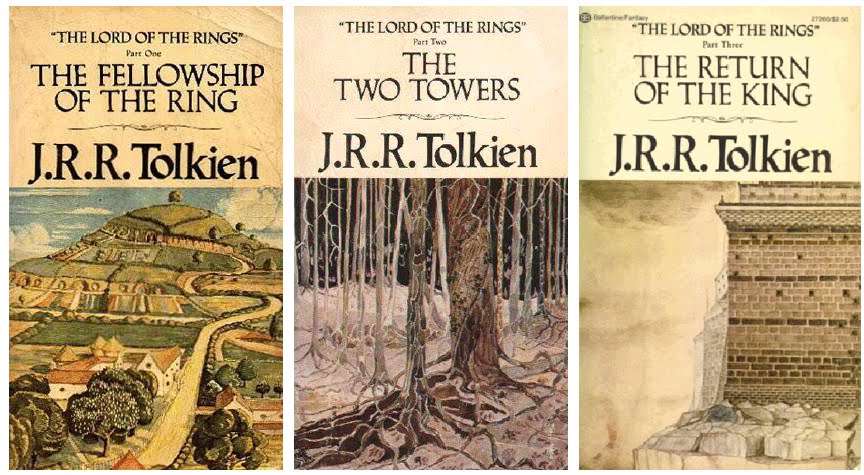
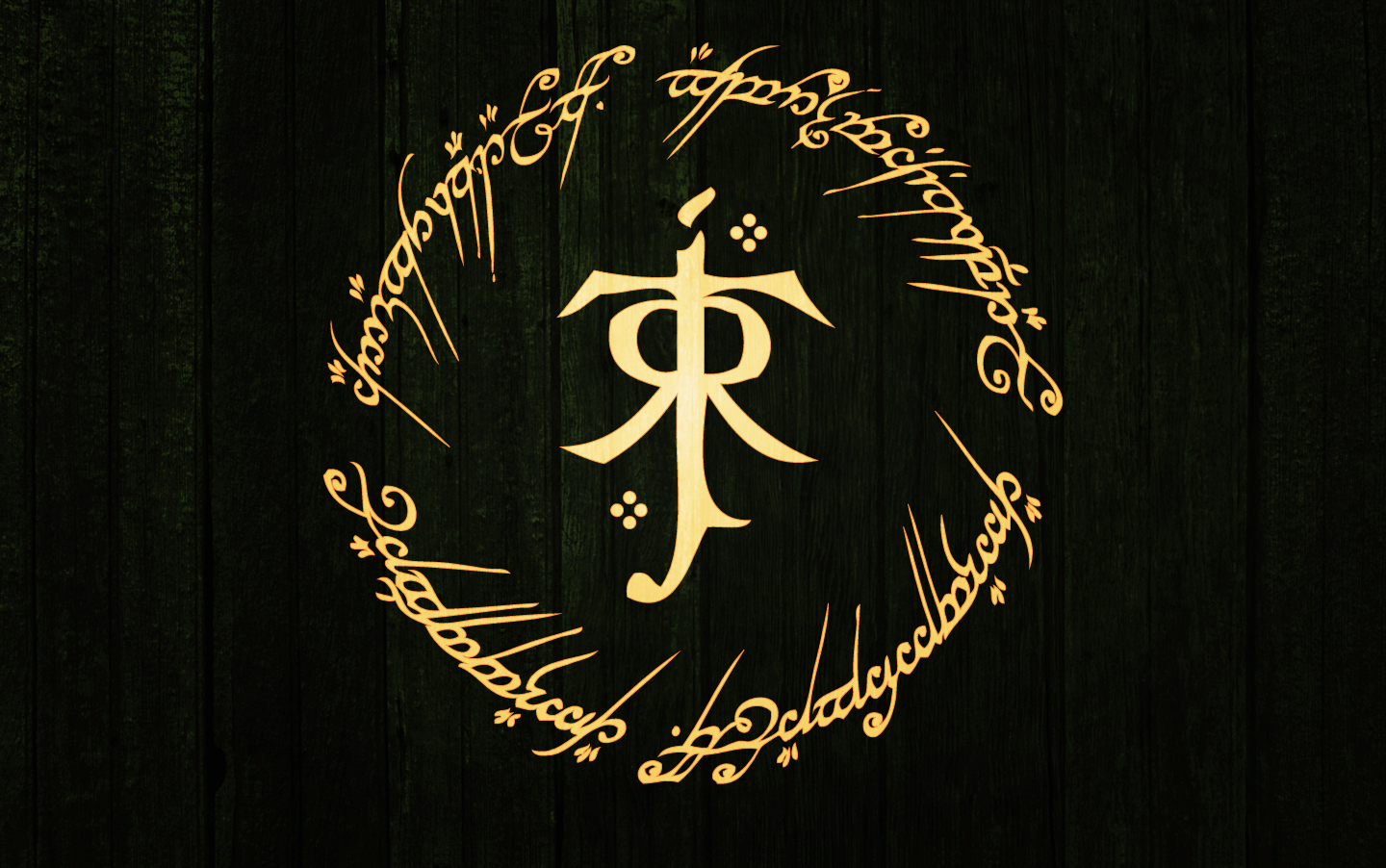


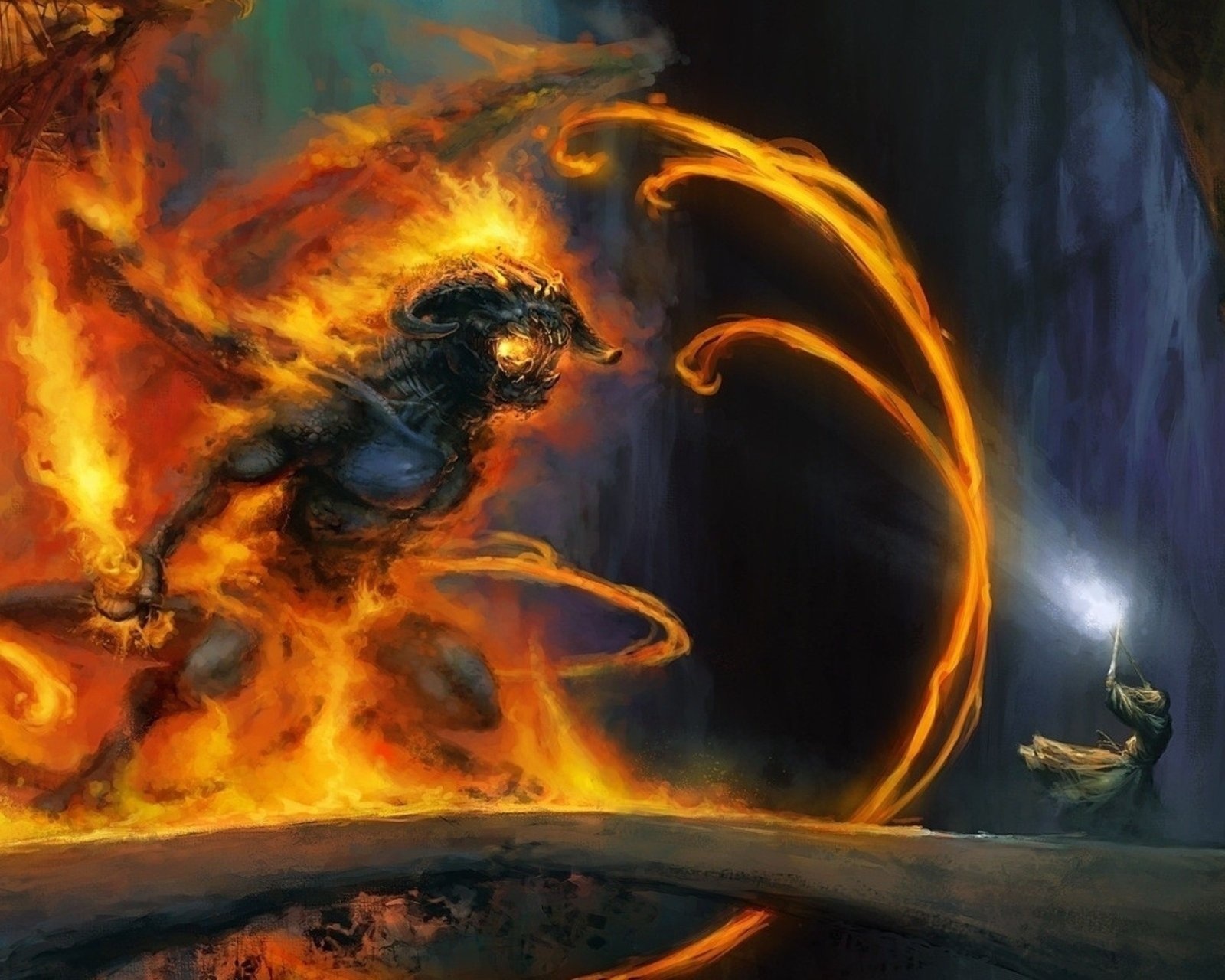

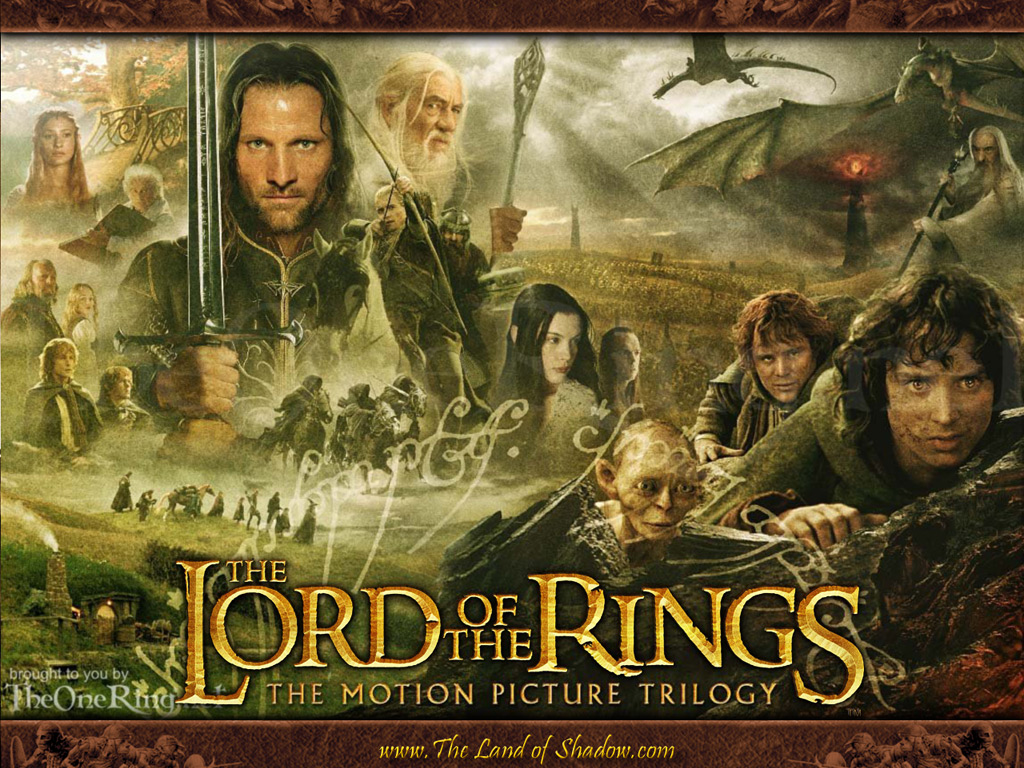

.jpg?sx-version-1)
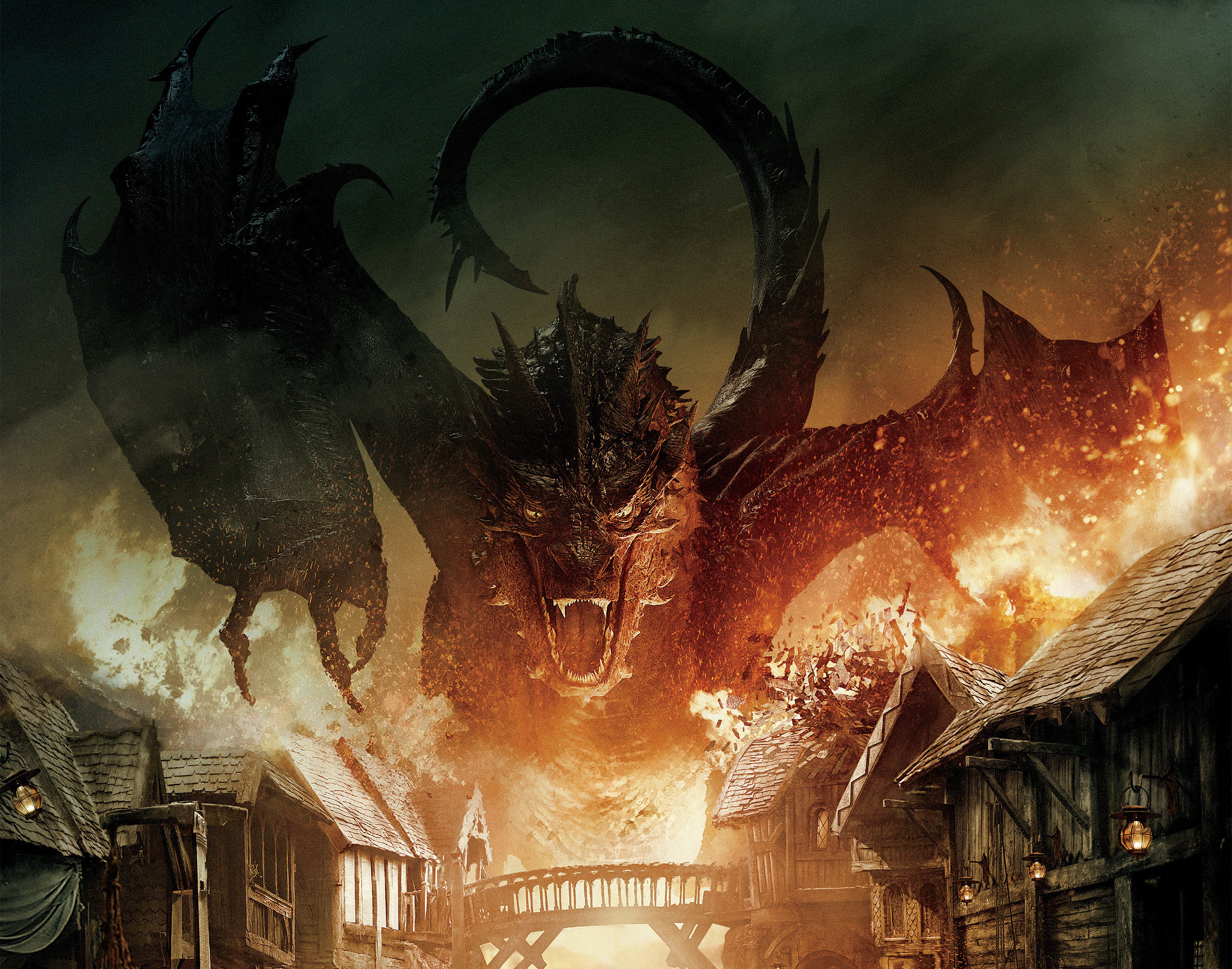





No comments:
Post a Comment